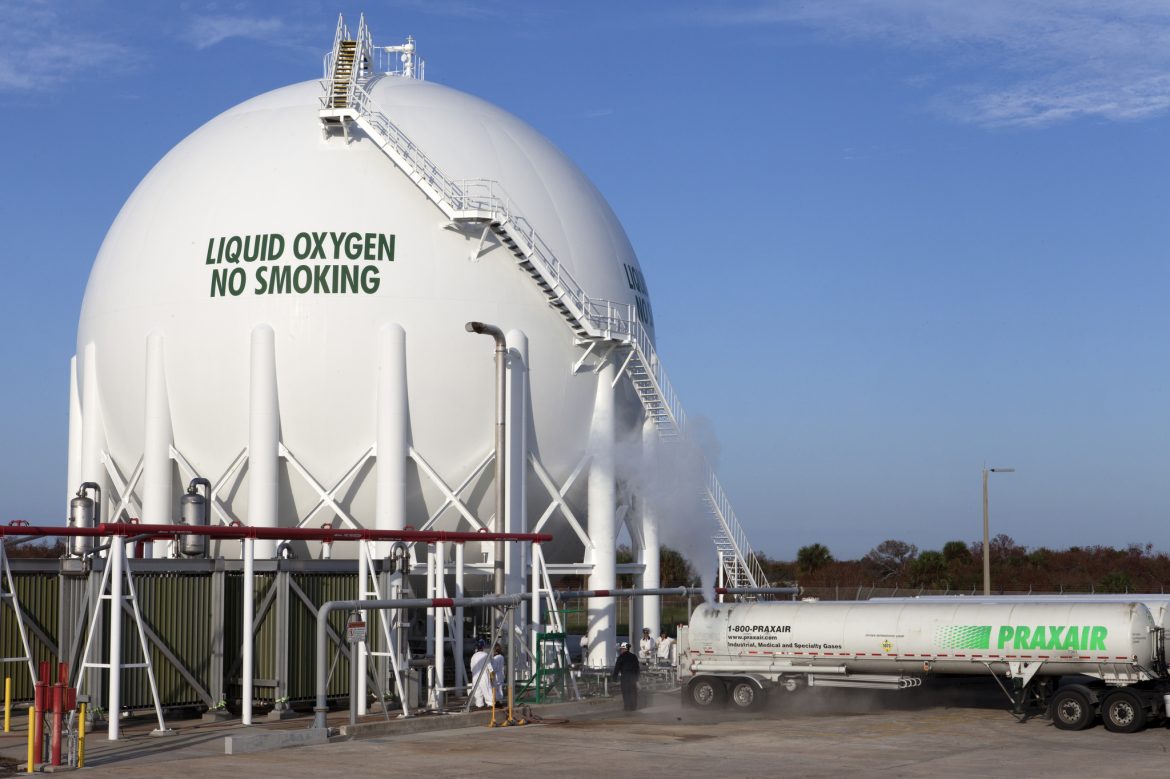In the second year of the pandemic, we now know that liquid oxygen (LOX) is an important tool in combating the severe symptoms of COVID-19. The majority of hospitalized patients need oxygen, often supplied by LOX providers such as commercial gas companies, pumped directly into their lungs. The same oxygen has another completely different application, and in pretty large quantities: rocket engines.
At a conference last month, SpaceX President Gwynne Shotwell reported that her company is facing a shortage of liquid oxygen, a key ingredient in rocket propellants, due to growing demand in hospitals for treating COVID-19 patients. NASA faces a similar problem that has brought its satellite launching program to a halt.
Liquid oxygen acts as an oxidizer, along with other rocket fuels including liquid hydrogen, kerosene, and methane. It is also the main oxygen source for hospital ventilators used in treating COVID-19 patients. Cooled oxygen is an essential propellant for all leading launching companies such as SpaceX, Virgin Orbit and ULA. However, it is gradually getting harder to obtain the liquid form of the most abundant element in the Earth’s crust. This is not a minor problem at all, as the process used to obtain this oxygen serves both rocket fuel and for COVID-19 patients.
Because LOX is highly flammable and explosive, drivers transporting it between the areas of production and usage must have a higher training than standard commercial truck drivers. Currently, besides the shortage of commercial truckers of all kinds, there is an additional shortage of those licenced to transport liquid oxygen. The same shortage also causes delays in the transport of liquid nitrogen, which must equally be “handled with care” on its way to the launching platforms. NASA had to delay the orbital launch of an Earth surveillance satellite by a week due to a lack of liquid nitrogen, used by ULA to test the rocket before launch.
Such challenges in the transport of liquid oxygen and other gases that need careful handling emerges as an unexpected but critical limiting factor in space missions. All the more reason for hoping to see the end of this pandemic as soon as possible.
REFERENCES
- 1. https://futurism.com/the-byte/spacex-lox-covid
- 2. https://www.universetoday.com/152386/covid-19-treatments-require-so-much-oxygen-it-could-delay-rocket-launches/#more-152386
- 3. https://www.businessinsider.com/liquid-oxygen-shortage-covid-spacex-gwynne-shotwell-impact-rocket-launches-2021-8

